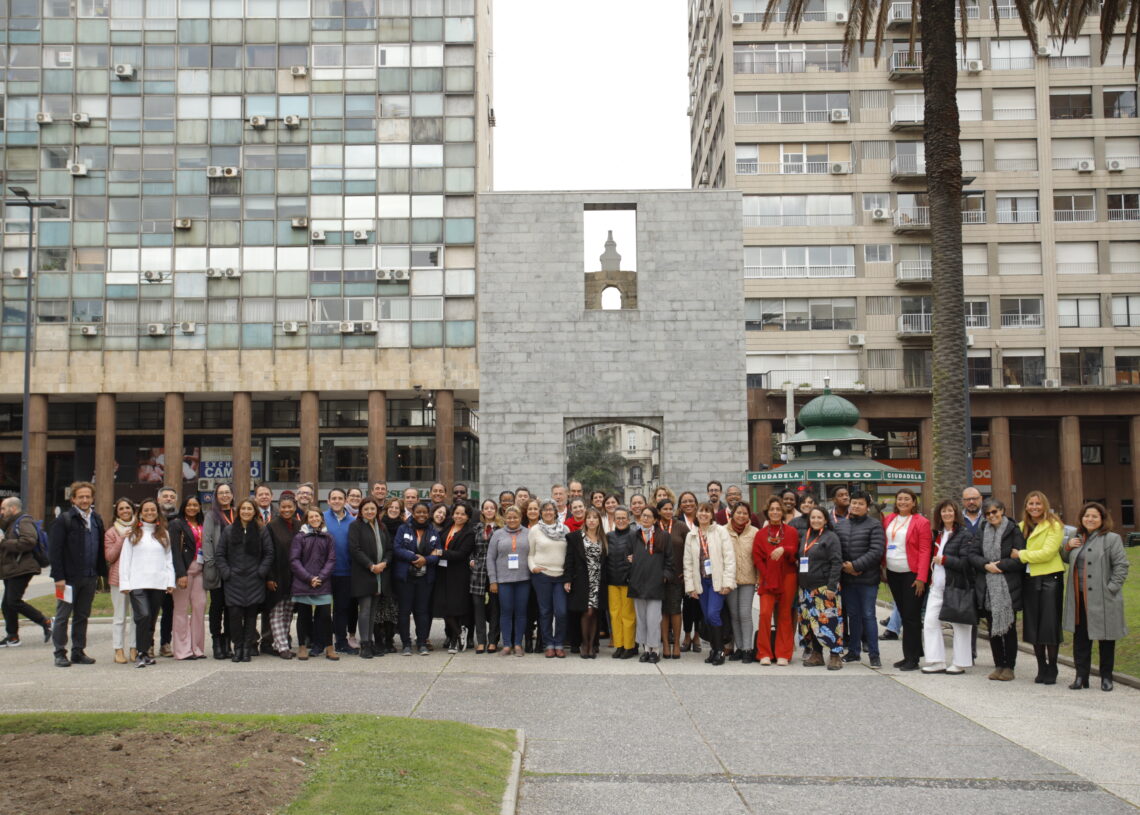More than eighty international experts on drugs met in Montevideo from June 20 to 23, 2023 at a regional workshop in which The European Union’s cooperation program COPOLAD III joined forces with Uruguay, Chile and Barbados, as well as the program’s partners: Spain’s National Plan on Drugs and the Ibero-American Network of Non-Governmental Organizations working on Drugs and Addictions (RIOD) and the Addiction Care Network (UNAD) to promote the development of plans to improve access to quality care and social inclusion for people with problematic drug use, with differential, gender perspectives and a focus on social innovation.
“Addressing harm and guaranteeing human rights is the task and responsibility of the State, of drug policies,” explained Daniel Radío, head of Uruguay’s National Drug Secretariat.
The meeting included keynote presentations, roundtable discussions and the presentation of the Inclusion Guide for people with problematic drug use in Latin America and the Caribbean, with a gender and differential approach. During the four days, working groups were also held on the stigma suffered by the drug-using population, especially women drug users.
is one of the approaches prioritized by COPOLAD III to accompany countries in the search for solutions to particularly complex drug policy problems, was present during the last two days of the Meeting. The staff of the Agirre Lehendakaria Center conducted a workshop on innovation linked to the theme of the activity.
COPOLAD is already developing innovation laboratories in countries such as Colombia and Chile where aspects such as the prevention of problematic drug use in young people and adolescents under the protection of the State or the improvement of policies towards young people at risk of being linked to networks of micro-trafficking and consumption of psychoactive substances are being addressed.
As a result of the meeting, all the countries present agreed on a Declaration on stigma and how to address it from public institutions and civil society in the work of care and social inclusion with the population with problematic drug use. This declaration will be the road map to advance in the fight against stigma in the region.
Additionally, as a result of the work under the innovation approach, national and regional roadmaps were identified and what will be the future learning community within the framework of COPOLAD was outlined.
“It has been four days of very intense work to advance a rights agenda that recognizes the complexity and diverse needs of the people and groups we serve,” said Inés Elvira Mejía, COPOLAD III expert on the subject. and one of the organizers of the event.






